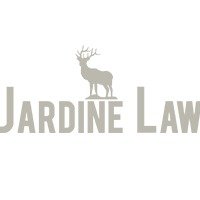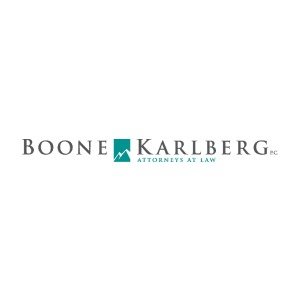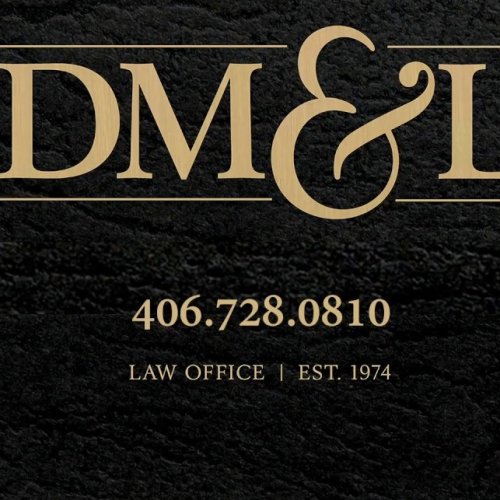Best Elder Abuse Law Lawyers in Montana
Share your needs with us, get contacted by law firms.
Free. Takes 2 min.
Or refine your search by selecting a city:
List of the best lawyers in Montana, United States
About Elder Abuse Law in Montana, United States
Elder abuse law in Montana focuses on protecting vulnerable adults from various forms of abuse, neglect, and exploitation. Seniors and dependent adults may face mistreatment from caregivers, family members, or institutions. Montana has specific statutes designed to safeguard adults aged 60 and older, as well as adults with disabilities, ensuring their rights and dignity are preserved. Legal intervention can help prevent abuse, prosecute offenders, and provide support for victims.
Why You May Need a Lawyer
There are several situations where individuals may require the guidance of a lawyer with experience in elder abuse law. If you suspect an elderly loved one is being abused, neglected, or financially exploited, a lawyer can help investigate and take legal action. Victims may need assistance obtaining protection orders or navigating complex issues involving guardianship or power of attorney. Attorneys can also represent elders in civil lawsuits for compensation or provide defense if there are unfounded allegations of abuse. Furthermore, they can help families resolve disputes related to estate planning and long-term care decisions where allegations or evidence of abuse arise.
Local Laws Overview
Montana law defines elder abuse broadly, including physical, emotional, financial abuse, neglect, and abandonment. The Montana Adult Protective Services Act outlines the responsibilities of state agencies in investigating and preventing elder abuse. Mandatory reporting laws require certain professionals, including healthcare workers and social workers, to report suspected abuse or neglect of a vulnerable adult. The state allows for protective orders and emergency interventions where abuse is apparent. Criminal penalties apply for perpetrators, and civil remedies are available for victims. Montana courts can appoint guardians or conservators to protect victims unable to care for themselves, and oversee recovery of stolen or misused assets.
Frequently Asked Questions
What is considered elder abuse in Montana?
Elder abuse can include physical harm, emotional or psychological abuse, sexual abuse, neglect, abandonment, and financial exploitation of adults aged 60 or older or adults with disabilities.
Who is required to report suspected elder abuse in Montana?
Healthcare professionals, social workers, law enforcement employees, employees of care facilities, and certain other professionals are mandatory reporters in Montana and must report suspected abuse to Adult Protective Services.
How do I report elder abuse in Montana?
You can report suspected abuse to Montana's Adult Protective Services by phone, online, or in person. If there is immediate danger, call law enforcement or 911.
What happens after a report of elder abuse is made?
Adult Protective Services will investigate the report to determine if abuse has occurred. They may take steps to protect the victim, including arranging for medical care, emergency shelter, or legal action.
Can I remain anonymous when reporting elder abuse?
Yes, Montana law allows for anonymous reporting, and the identity of the reporter is kept confidential unless disclosure is required by a court order.
What are the penalties for elder abuse in Montana?
Penalties vary depending on the type and severity of abuse. Criminal charges can result in jail time and fines. Civil actions may require the abuser to pay restitution or damages.
What legal protections are available for victims?
Victims may receive protective orders from the court, access to emergency housing, support from social services, and representation in court proceedings.
Can elder abuse happen in nursing homes or assisted living facilities?
Yes, abuse can occur in institutional settings. Residents in these facilities have legal rights to safety and dignity, and staff must adhere to state regulations and mandatory reporting requirements.
Is it possible to recover stolen or misused assets?
Yes, Montana law allows victims or their representatives to pursue civil actions to recover stolen or misused money, property, or assets.
How can a lawyer assist in an elder abuse case?
Lawyers can investigate abuse, file protection orders, represent victims or families in court, help recover assets, navigate guardianship or conservatorship issues, and ensure compliance with reporting requirements.
Additional Resources
- Montana Adult Protective Services: Provides investigation and protective measures for vulnerable adults. - Montana Department of Public Health and Human Services: Offers information on elder abuse, prevention, and support services. - Montana Legal Services Association: Provides legal assistance for low-income seniors. - Local Area Agencies on Aging: Offer resources for senior safety, outreach, and advocacy. - Law enforcement agencies: Can assist in emergency situations and conduct criminal investigations related to elder abuse.
Next Steps
If you suspect elder abuse or need legal guidance, begin by documenting your concerns and any evidence. Report urgent matters to Adult Protective Services or law enforcement. For legal assistance, consult with a lawyer who has experience in Montana elder law. Prepare any relevant documents, such as medical records, financial statements, and notes of observed incidents, for your attorney. You may also reach out to local organizations, such as the Montana Legal Services Association or your Area Agency on Aging, for additional support and referrals. Prompt action is important to protect the rights and well-being of vulnerable adults.
Lawzana helps you find the best lawyers and law firms in Montana through a curated and pre-screened list of qualified legal professionals. Our platform offers rankings and detailed profiles of attorneys and law firms, allowing you to compare based on practice areas, including Elder Abuse Law, experience, and client feedback.
Each profile includes a description of the firm's areas of practice, client reviews, team members and partners, year of establishment, spoken languages, office locations, contact information, social media presence, and any published articles or resources. Most firms on our platform speak English and are experienced in both local and international legal matters.
Get a quote from top-rated law firms in Montana, United States — quickly, securely, and without unnecessary hassle.
Disclaimer:
The information provided on this page is for general informational purposes only and does not constitute legal advice. While we strive to ensure the accuracy and relevance of the content, legal information may change over time, and interpretations of the law can vary. You should always consult with a qualified legal professional for advice specific to your situation.
We disclaim all liability for actions taken or not taken based on the content of this page. If you believe any information is incorrect or outdated, please contact us, and we will review and update it where appropriate.
Browse elder abuse law law firms by city in Montana
Refine your search by selecting a city.
















